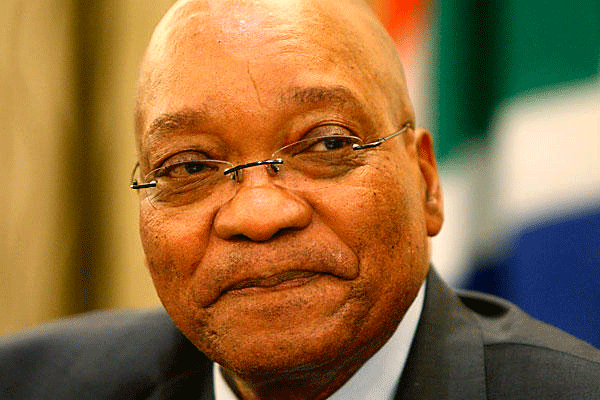
So things are happening in South Africa after an eventful week which saw a Cabinet reshuffle. For those who follow South African politics in general and the African National Congress (ANC) in particular, the current developments are not surprising as they are not new. In September 2008, the former President of South Africa, Thabo Mbeki, was ejected in exactly the same way as is being prescribed on President Jacob Zuma today.
Develop me: Tapiwa Gomo

The question that is dividing analysts after last week’s events is whether Zuma’s decision to reshuffle his Cabinet was right.
The debate on this issue is not centred on any breach of law, the Constitution or on any factual argument, but emotionalism and hate. Reshuffling his pack is within his remit, even though emerging sentiments suggest that he is wrong any way without pointing out the reasons.
There are several factors at play here. The governance of South Africa is influenced and controlled by several factors outside the realms of ANC. And those factors have tended to connive and transmogrify into a well-co-ordinated system of regime change. The system is made up of the media, the courts, civil society organisations and uses political individuals as pawns to draw on public sympathy. The convergence of these is often seen as democracy at play when in actual fact it is capitalistic interests at play.
In Mbeki’s case the system operated in reverse mode by acquitting Zuma of all court cases against him, thereby painting Mbeki as a bad person who thrives on blackmailing others.
The media then fed on this to denigrate Mbeki, while the civil society organisations were cheer-leading, criticising his policies perceived to be incongruent with current needs. His HIV and AIDS policy was one of his bane. Zuma became the natural beneficiary of Mbeki’s chastisement, but he also played the role of the emotional draw card.
Fast forward to 2017, former Finance minister Pravin Gordhan has become the trigger to what has been simmering over the past few years. The same system that orchestrated the ouster of Mbeki has now turned on Zuma.
- Chamisa under fire over US$120K donation
- Mavhunga puts DeMbare into Chibuku quarterfinals
- Pension funds bet on Cabora Bassa oilfields
- Councils defy govt fire tender directive
Keep Reading
Disgruntled ANC members, Julius Malema of the Economic Freedom Fighters, the Mmusi Maimane of the Democratic Alliance are willing and available tools of change, so are the promiscuous civil society organisations.
They are tools because the same system sponsoring them will not allow them anywhere near power. The media is now feeding on the fodder generated by these, but also reverberating the interests of the system that is subtly pursuing the change agenda. None of these institutions is clean, though all of them are too blind to see what is at play.
Why this system is not patient enough to allow presidents to finish off their terms still baffles the mind. The post-independent South Africa is yet to have a president, who completed two terms. Or could it be that it works to the system’s advantage if the ANC is destabilised before the end of the second term and push the party into ad hoc decisions, interim choices and temporary arrangements before electing a substantive leader. And whoever is elected after the stop gap measures starts cautiously to avoid upsetting the system. The removal of leaders is not about performance, because if it was, Mbeki would have stayed as the economy performed better under him.
The system takes different forms, but once in a while it rears its essentially ugly head as the faceless and nameless markets.
This system has its choices and taste on who should manage the South African economy and in Gordhan it had found a last resort custodian of its interests. He was the rallying point, as the markets tinker with the ANC choices of the next leadership ahead of its National Conference in December, while casting away competition from the Guptas.
In the history of South Africa, no black Finance minister has lasted two years because the markets tend to react negatively to their occupancy. Nhlanhla Nene lasted from May 2014 to December 2015, while David van Rooyen served for only five days (a weekend special) before Gordhan took over for the second time after his May 2009 to May 2014 tenure. Gordhan was the markets’ choice, but then who is this market?
I call the Gordhan project the last resort because his presence in that Finance ministry position was strongly tied to the strength of the rand instead of the government economic policies.
It is the same way Zuma’s decision-making is alleged to have been influenced by the Guptas. And Gordhan’s link to the strength of the rand was tantamount to an economic capture designed to make him an invincible figure thereby stifling the ANC’s decision-making powers.
As expected, Gordhan’s dismissal has caused the rand to artificially tumble inciting public ire and emotions thereby portraying Zuma as the bad guy. This is the “markets” versus the Guptas tussling for control and not democracy.
With emotions at fever pitch, the destruction of Zuma may now begin, so does the destabilisation of the ANC and the identification of its market-preferred leader. While he has over the years demonstrated that he is an unflinching political figure, who exudes a subtle arrogance and political tact, the axis of change have so much fodder in their annals to destroy Zuma.
The courts will refresh the several cases he has been acquitted of. The media will bring forth the moral issues of rape, polygamy and the Gupta state capture, while Malema and Maimane will pursue the impeachment line.
And none of these are playing their game, but they are all agents of change to preserve the economic superstructure that runs South Africa.
Tapiwa Gomo is a development consultant based in Pretoria, South Africa











